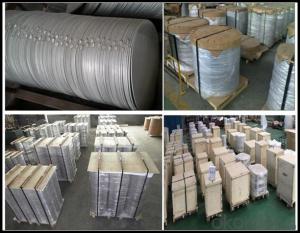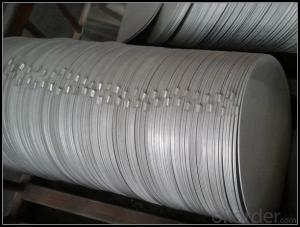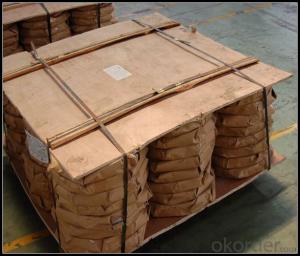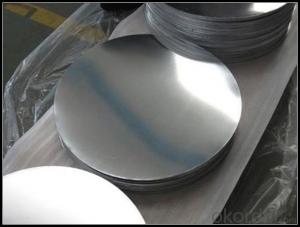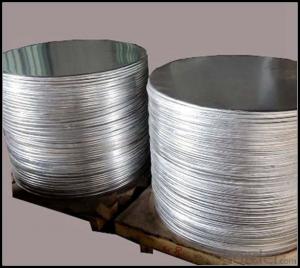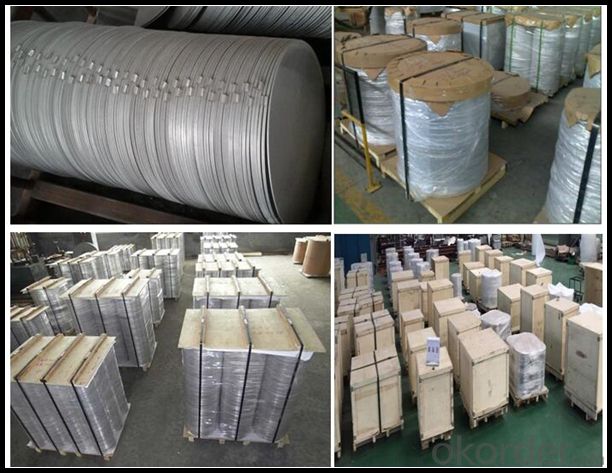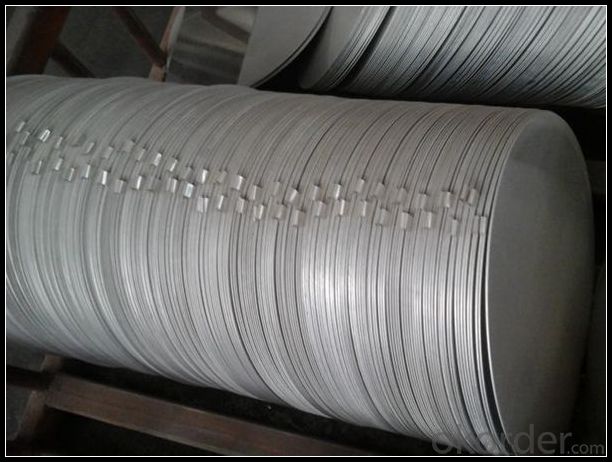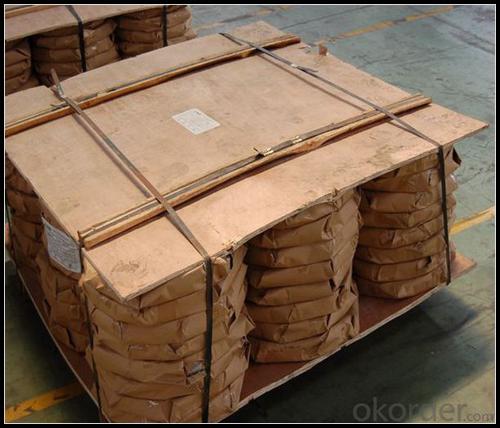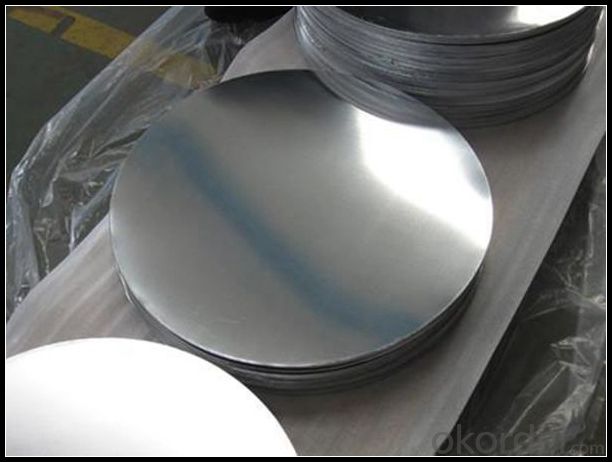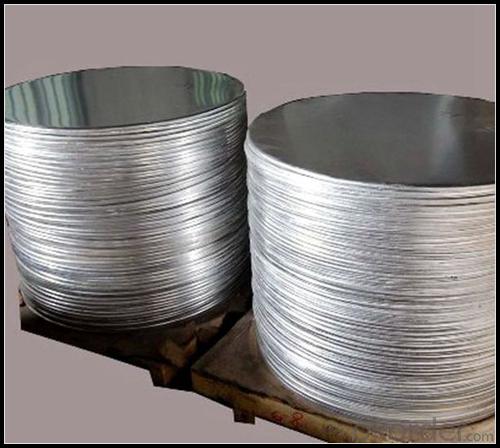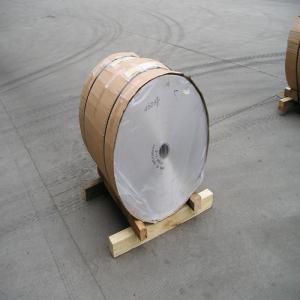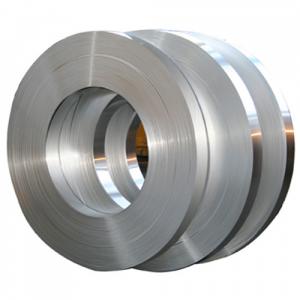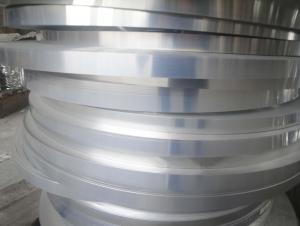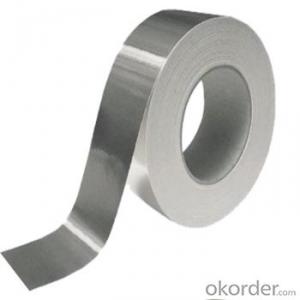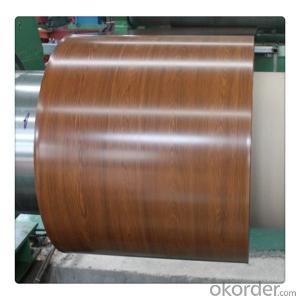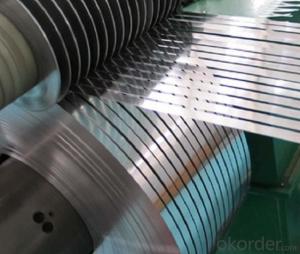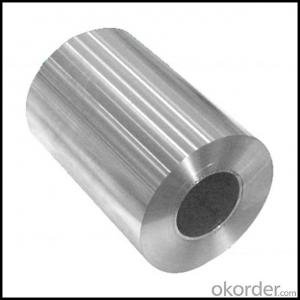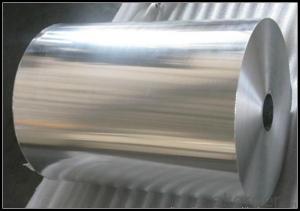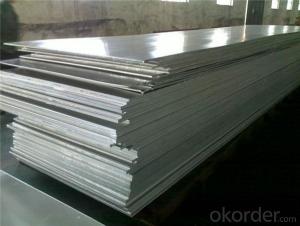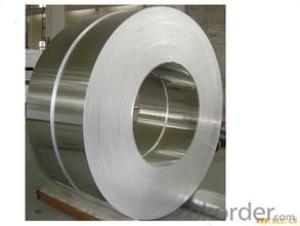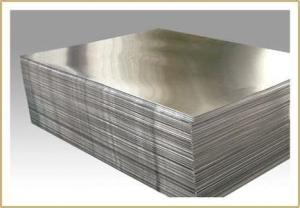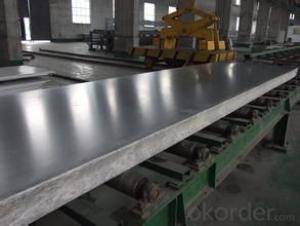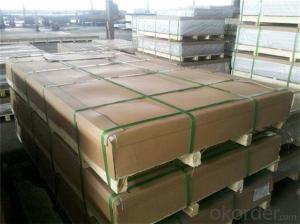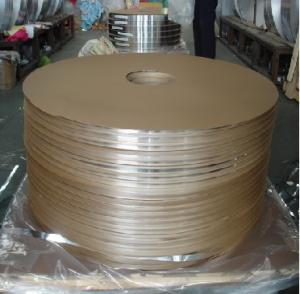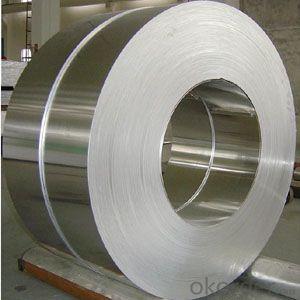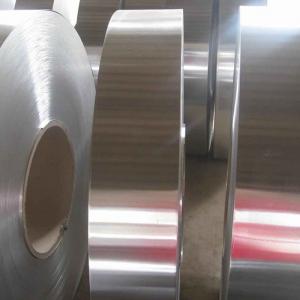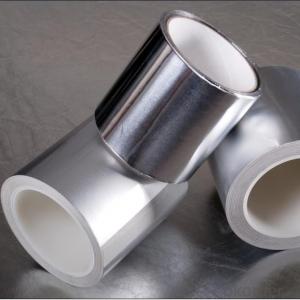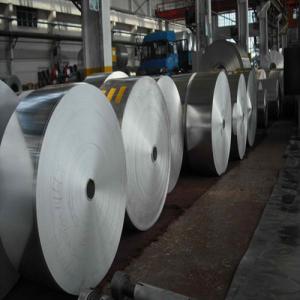Flat Aluminum Strips - Aluminum Sheets, Wholesale Price, Lowest Offer
- Loading Port:
- Tianjin
- Payment Terms:
- TT OR LC
- Min Order Qty:
- 1 m.t.
- Supply Capability:
- 4999 m.t./month
OKorder Service Pledge
OKorder Financial Service
You Might Also Like
Specification
1. Specification of Aluminum
1) Alloy | 1050, 1060,1100, 3003 3004 3105 3005 5005 5052 etc |
2) Temper | O/H12/H14/H1/H18/H32/H34/H36/H38//H111/H112/H116/H321/T6/T651/T3/T351 etc |
3) Thickness | 0.1mm to 6mm |
4) Width | 20mm to 3300mm |
5) Coil weight | 100kgs to 6 tons depends on actual requirement |
6) Core material | Aluminum alloy |
7) Coil Inner diameter | 76mm, 152mm,or as required |
2. Application of Aluminum
(1).Advertisement: display platforms, signboards, fascia, shop fronts...
3. Feature of Aluminum
Studies have shown that consumption of acidic foods or liquids with aluminium significantly increases aluminium absorption, and maltol has been shown to increase the accumulation of aluminium in nervous and osseous tissue.[90]
4. Certificate:
SGS and ROHS(if client request, paid by client), MTC(plant provided), Certificate of Origin(FORM A, FORM E, CO), Bureau Veritas and SGS (if client request, paid by client), CIQS certificate
5. Image of Aluminum
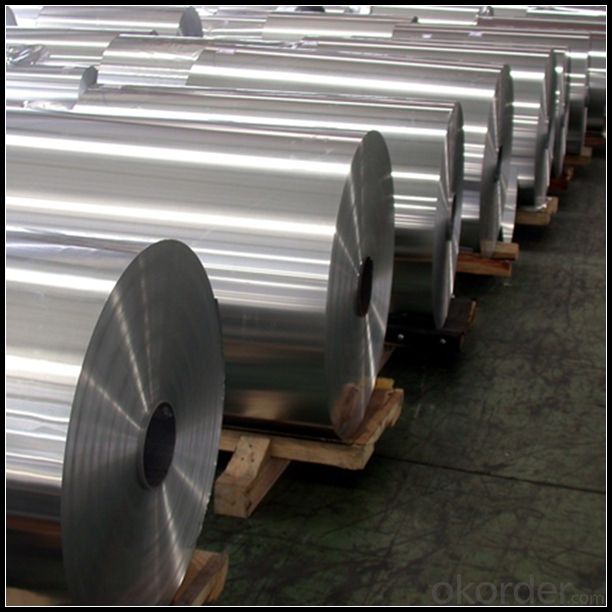
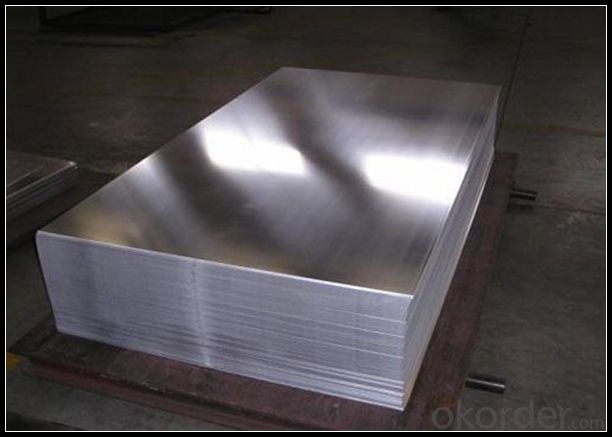
6. Our Service
1. Reply your enquiry in 24 working hours. |
2. OEM, buyer design, buyer label services provided. |
3. Exclusive and unique solution can be provide to our customer by our well traned and professional engineers and staffs. |
4. We can provide free sample for your check |
5. We have the certification of ISO 9001 |
6. Timely delivery |
7. Special discount and protection of sales area provided to our distributor. |
8. Good after-sale service. |
7. FAQ
Q: What is the produce prase? | ||||
A: Normally it would be 40days after received your deposit. | ||||
Q: Can you provide free samples? | ||||
A: Yes, free samples will be sent to you on freight at destination. | ||||
Q: Can I get your latest catalogue? | ||||
A: Yes, it will be sent to you in no time. | ||||
Q: What is the MOQ? | ||||
A: 3 tons | ||||
Q: What are your payment terms? | ||||
A: We accept L/C, D/A, D/P, T/T, West Union,etc. |
- Q: This question asks for a comparison between aluminum strips and other common roofing materials, highlighting their distinct characteristics.
- <p>Aluminum strips are lightweight, corrosion-resistant, and have a long lifespan, making them ideal for roofing applications. They are also recyclable and can be easily bent and shaped. In contrast, other roofing materials like asphalt shingles are more affordable but have a shorter lifespan and are less eco-friendly. Metal roofing, similar to aluminum, is durable but can be heavier and more expensive. Clay and concrete tiles offer a traditional aesthetic but are heavy, require more maintenance, and are prone to breakage. Wood shakes and shingles are renewable but are less fire-resistant and have a shorter lifespan compared to aluminum.</p>
- Q: This question asks for a step-by-step guide on how to attach aluminum strips to a roof.
- <p>To install aluminum strips on your roof, follow these steps: 1. Clean the roof surface to ensure a proper bond. 2. Measure and cut the aluminum strips to the required length. 3. Apply a high-quality adhesive or sealant to the back of the aluminum strips. 4. Position the strips on the roof, ensuring they are aligned and straight. 5. Press firmly to secure the strips in place and allow the adhesive to cure according to the manufacturer's instructions. 6. Check for any gaps or uneven areas and apply additional sealant if necessary. 7. Regularly inspect and maintain the aluminum strips to ensure they remain in good condition. Always follow safety precautions and consider hiring a professional if you are unsure about any steps.</p>
- Q: Can aluminum strips be recycled repeatedly without any loss in quality?
- <p>Yes, aluminum strips can be recycled indefinitely without losing their quality. Aluminum is a highly recyclable material, and the recycling process does not degrade the metal's properties. In fact, recycled aluminum requires only 5% of the energy needed to produce new aluminum from raw materials. This makes aluminum recycling an environmentally friendly and sustainable practice.</p>
- Q: How to use batteries, magnets, cans of aluminum belt to make a rotating aluminum belt device, please explain
- On the left is an aluminum can top. It is on a vertical shaft and can rotate freely. On the right is a used water pen holder, the same on the vertical shaft, you can freely rotate.
- Q: The user is inquiring if it's possible to use recycled paints or coatings to prevent rust and corrosion on aluminum strips.
- <p>Yes, you can use recycled paints or coatings to protect aluminum strips from rusting or corrosion. However, it's important to ensure that the recycled paints are compatible with aluminum and offer sufficient protection. Recycled paints should be free from contaminants that could compromise the protective layer. Additionally, the application process should be done correctly to ensure an even and effective coating. It's also recommended to test a small area first to verify the effectiveness of the recycled paint or coating before applying it to the entire surface of the aluminum strips.</p>
- Q: This question asks about the differences between aluminum and stainless steel in terms of their ability to resist corrosion.
- <p>Yes, there are differences between aluminum and stainless steel in terms of corrosion resistance. Aluminum is highly resistant to corrosion due to the formation of a protective oxide layer on its surface, which prevents further oxidation. This makes it suitable for environments with high moisture or exposure to corrosive substances. Stainless steel, on the other hand, also has good corrosion resistance, especially when it contains higher amounts of chromium, which forms a passive film that protects the metal from corrosion. However, stainless steel can be more susceptible to corrosion in certain environments, such as those with chlorides, compared to aluminum.</p>
- Q: Can aluminum strips be utilized as materials for car body panels?
- <p>Yes, aluminum strips can be used for car body panels. Aluminum is known for its lightweight, high strength, and corrosion resistance, making it an ideal material for automotive applications. It offers better fuel efficiency due to reduced weight and improved safety due to its strength. Additionally, aluminum's recyclability makes it an environmentally friendly choice. However, it's important to note that aluminum requires different manufacturing techniques compared to traditional steel, and it may be more expensive.</p>
- Q: What are the typical applications of aluminum strips within the construction industry?
- <p>Aluminum strips are commonly used in construction for various purposes due to their strength, durability, and lightweight properties. They are often used as a component in the manufacturing of aluminum windows and doors for their high strength-to-weight ratio and resistance to corrosion. Aluminum strips are also utilized in the construction of curtain walls, which are the outer coverings of buildings, for their aesthetic appeal and low maintenance requirements. Additionally, they are employed in roofing systems for their ability to withstand harsh weather conditions and resist rust. Furthermore, aluminum strips are used in the framing of buildings and in the creation of structural supports due to their high tensile strength.</p>
- Q: This question asks for the proper maintenance procedures for an aluminum strip roof to ensure its longevity and functionality.
- <p>To maintain an aluminum strip roof properly, follow these steps: Regularly inspect the roof for any signs of damage or wear, such as dents, rust, or loose seams. Clean the roof surface gently with a soft brush or cloth to remove debris and prevent scratches. Avoid using harsh chemicals or abrasive materials that could damage the aluminum. Ensure proper drainage to prevent water pooling, which can lead to corrosion. If leaks occur, address them promptly to prevent further damage. Apply a protective coating if needed to enhance durability and UV resistance. Periodically check the fasteners and secure any that have become loose. For major repairs or replacements, consult with a professional roofer to ensure the job is done correctly and safely.</p>
- Q: This question asks about the impact of aluminum strips on the thermal insulation properties of a building.
- <p>Aluminum strips can significantly affect the insulation of a building by reflecting heat and light, reducing the amount of heat that is absorbed by the building's structure. This reflective property helps to keep the interior cooler in summer and can reduce the load on air conditioning systems. However, if not properly insulated, aluminum strips can also lead to heat loss in winter, as they can reflect heat back out of the building. Proper installation with insulation materials can maximize the benefits of aluminum strips in maintaining a comfortable indoor temperature while conserving energy.</p>
Send your message to us
Flat Aluminum Strips - Aluminum Sheets, Wholesale Price, Lowest Offer
- Loading Port:
- Tianjin
- Payment Terms:
- TT OR LC
- Min Order Qty:
- 1 m.t.
- Supply Capability:
- 4999 m.t./month
OKorder Service Pledge
OKorder Financial Service
Similar products
Hot products
Hot Searches
Related keywords
